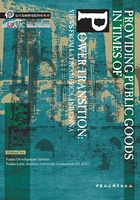
Latin American Regionalism and Cultural Theories of Inter-national Relations
At the same time,and with some important exceptions mainly as potentially relating to Venezuela,Latin America is today,as it has mostly been in the past (Teixeira,2012),not itself strongly involved in any material security contests between extra-hemispheric great powers.Nor are any of its countries on the verge of becoming pow-erful competitors themselves in any theoretically viable sense,at least not in the short term (Peña,2018).Intra-regional power shifts principally,the fact that regional leadership in the Southern Cone passed from Argentina to Brazil,for a variety of possible reasons,not caused any of the confliction that some approaches might lead to expectation (Schenoni,2018).Also,any revolutionary positions towards established global hierarchies—though very much a possi-bility in the more distant future—are currently being temporarily discarded,or at least tempered,in favor of a tentative acceptance of some of their forms,a pattern that has been observed in previous phases of regional politics (cf.Schulz,2017).Therefore,it is highly unlikely that the international political behavior of Latin American states—such as the participation in,abstention from,or resistance to global governance structures—will in the near future be dominated by classical mechanisms such as balancing,band wagoning,status seeking,and the like.
It is more plausible to assume that any international engage-ment—or the lack of it—will instead be conditioned by highly specific,domestic criteria of legitimacy.In the absence of dramatic external security predicaments or intra-societal crises,Latin American countries will conform with approaches which insist that “‘social action’ does not arise from material factors but is mediated through culturally contingent understandings” (Schulz,2019),rather than with realist or Marxist materialisms.Or,in other words,ideational approaches to International Relations appear to be more promising than structuralist theories for generating assumptions about future priorities in regional Latin American politics.Some authors argue that this is now the case universally,and that in a post-hegemonic and “multiplex” system,instead of a “top-down view of power-constructed regions”,there would rather be “regional worlds” dominated by regional concerns and norms (Acharya,2014).Others emphasize that specifically Latin American regionalism had always had an important discursive element (Malamud and Gardini,2012)—however,this diagnosis would also apply to at least some elements of European integration (Diez,2014).In any case,the political identification of the public or private character of goods is also frequently subject to culturally specific figures of argumentation (Marginson,2007).Overall,one can speak of “broad agreement” among scholars that regional politics have entered a new phase,and one characterized by a mostly inward-looking vision that is chiefly concerned with domestic legitimacy (Petersen and Schulz,2018).
Theories based on cultural norms as main drivers of political decision-making therefore should be plausible candidates for stud-ying possible futures of Latin America.However,it might be difficult to study the emergence of a region driven by Latin American norms using conventional norms—or identity-based theories offered in International Relations.Neumann and Wigen (2018) characterize international society theory of the English School as “too typically modernist homogenising and too hagiographical in its occlusion of those marginalized and excluded”,thereby echoing concerns made by postcolonial critics of International Relations theory.Classical cons-tructivist works are often based on identities that may make sense in classical,great power competition situations (e.g.Wendt,1999),but not necessarily in situations where security dilemmas and balancing considerations are neither expected nor considered possible,as is often the case in Latin American politics (Kleinschmidt and Gallego,2017).In the same vein,norms-oriented constructivism has been criticized for expecting that “international norms like sovereignty,secularism,and human rights emerge from the norm-generating Euro-pean core,and then diffuse into the norm-receiving non-European periphery” (Kayaoglu,2010).
Furthermore,according to Christian Reus-Smit (2018,4-5),many International Relations scholars tend to treat the notion of culture according to a “default conception” of “cultures as coherent entities:bounded,integrated,and distinct wholes”.Territorialized in such a monistic fashion,it is hard to fathom how culture is supposed to have any true conceptual impact beyond serving as a perceptional filter for otherwise fixed rationalist calculations.In the same vein,many concepts of culture in International Relations are still based on traditional notions of discrete “civilizations” (Buzan,2010).Other works draw upon recognition theories,differentiating,for example,the classical triad of “honor”,“face” and “dignity” cultures (Friedrichs,2016).While this is a more sophisticated approach,leaving open significant space for internal discord within “units”,it also relies on a simple scaling up of essentially anthropomorphic concepts (Fried-richs,2016).It is therefore still essentially static,a deficit criticized in many culturalist approaches to International Relations theory (Reus-Smit,2018).